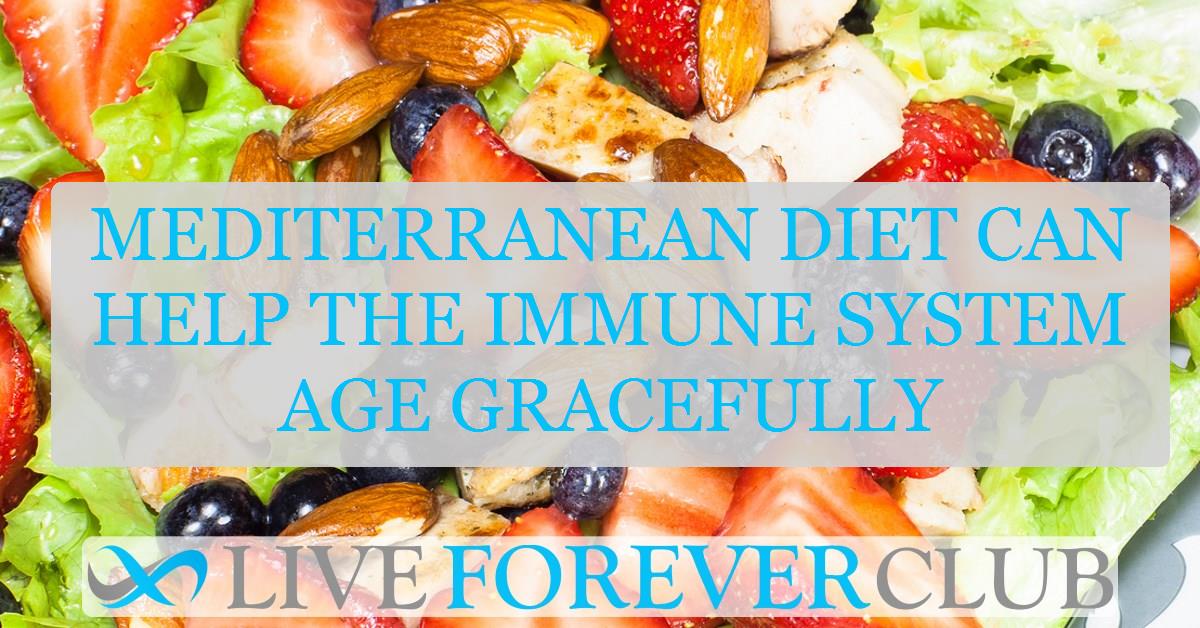Are you tired of feeling run down as you get older? Is your immune system not what it used to be? The latest science reveals a powerful and delicious solution: the Mediterranean diet. A recent study published in Integrative Biology suggests that what you eat plays a crucial role in how your immune system ages.
Immune ageing
As we age, our immune systems naturally change. This process, called immunosenescence, can make us more vulnerable to infections and chronic diseases. Think of it like a recipe gone wrong: the ingredients may still be there, but the final product just doesn't turn out quite right.
Chronic inflammation, aptly named "inflammaging," is another unwelcome guest that often accompanies ageing. This low-grade inflammation simmers in the background, potentially contributing to a variety of health problems.
Researchers at the University of Birmingham conducted a comprehensive analysis to understand the relationship between diet and immune ageing. They focused on older adults and assessed their dietary patterns using a Food Frequency Questionnaire (FFQ). The study involved 40 healthy older adults, aged 63-84, and used immunophenotyping and functional assays to analyze their immune responses.
Key findings
The study revealed several important associations between dietary patterns and immune health in older adults. Here are the main findings:
Mediterranean diet and lower IMM-AGE score:
Higher adherence to the MedDiet is linked to a lower IMM-AGE score, indicating better immune ageing.
The MedDiet's protective effects are attributed to high dietary fiber and polyunsaturated fatty acids (PUFAs), which reduce pro-inflammatory senescent T cells.
Vitamin-rich diets:
Diets rich in vitamins A, B6, and B12 are associated with fewer signs of immunosenescence.
Higher intake of these vitamins correlates with reduced accumulation of senescent T cells and better immune function.
Anti-inflammatory benefits of dietary fiber and PUFAs:
High dietary fiber intake is linked to fewer pro-inflammatory T cells and increased anti-inflammatory cytokine production.
PUFAs, found in fish, nuts, and olive oil, help reduce systemic inflammation and support immune health.
Impact of unhealthy diets:
Diets high in meat, cholesterol, and alcohol are associated with increased pro-inflammatory T cells and higher IMM-AGE scores.
Mediterranean diet significance
The Mediterranean diet emphasizes the consumption of fruits, vegetables, whole grains, legumes, nuts, fish, and olive oil. It involves low-to-moderate intake of meats, dairy products, and processed foods. This dietary pattern has been shown to protect against frailty, cardiovascular disease, and other chronic age-related diseases.
The study highlights the importance of specific nutrients in maintaining immune health:
- Vitamin A: Reduces terminally differentiated memory T cells and enhances anti-viral cytokine production.
- Vitamin B6: Decreases senescent T cells and increases naive T cells, contributing to lower IMM-AGE scores.
- Vitamin B12: Similar to Vitamin A, it reduces senescent T cells and improves memory T cell frequency.
- Vitamin E: Exhibits anti-inflammatory properties and promotes regulatory B cells.
- Folate: Supports immune health by reducing pro-inflammatory cytokine production.
Practical tips for adopting a Mediterranean diet
Increase fruit and vegetable intake:
Aim for at least five servings of fruits and vegetables per day. Incorporate a variety of colors and types to maximize nutrient intake.
Choose whole grains:
Replace refined grains with whole grains such as brown rice, quinoa, and whole wheat bread. These provide essential dietary fiber and nutrients.
Incorporate healthy fats:
Use olive oil as your primary cooking fat. Include nuts, seeds, and avocados in your diet for healthy fats and PUFAs.
Eat more fish:
Aim for at least two servings of fish per week, particularly fatty fish like salmon, mackerel, and sardines, which are rich in omega-3 fatty acids.
Limit red meat and processed foods:
Reduce consumption of red meat and processed foods high in saturated fats, cholesterol, and sodium. Opt for lean protein sources such as poultry, beans, and legumes.
Moderate alcohol consumption:
If you consume alcohol, do so in moderation. The Mediterranean diet allows for low-to-moderate alcohol intake, particularly red wine, which may have some health benefits when consumed in moderation.
The study underscores the significant impact of diet on immune ageing. Adopting a Mediterranean diet, rich in fruits, vegetables, whole grains, healthy fats, and specific vitamins, can help maintain immune health and promote healthy ageing. By making these dietary changes, older adults can enhance their immune function, reduce inflammation, and potentially extend their lifespan.
Future directions
While the study provides valuable insights, it also highlights the need for further research. Larger studies involving diverse populations are necessary to confirm these findings and develop comprehensive dietary recommendations. Additionally, future research should explore the combined effects of dietary patterns and nutritional supplements on immune ageing.
The takeaway message is clear: your diet is not just about satisfying your hunger; it's about nourishing your immune system and setting the stage for healthy ageing. By embracing a Mediterranean-style eating pattern, you can give your immune system the support it needs to thrive for years to come.
The study was carried out by Niharika A Duggal and published in Integrative Biology.







